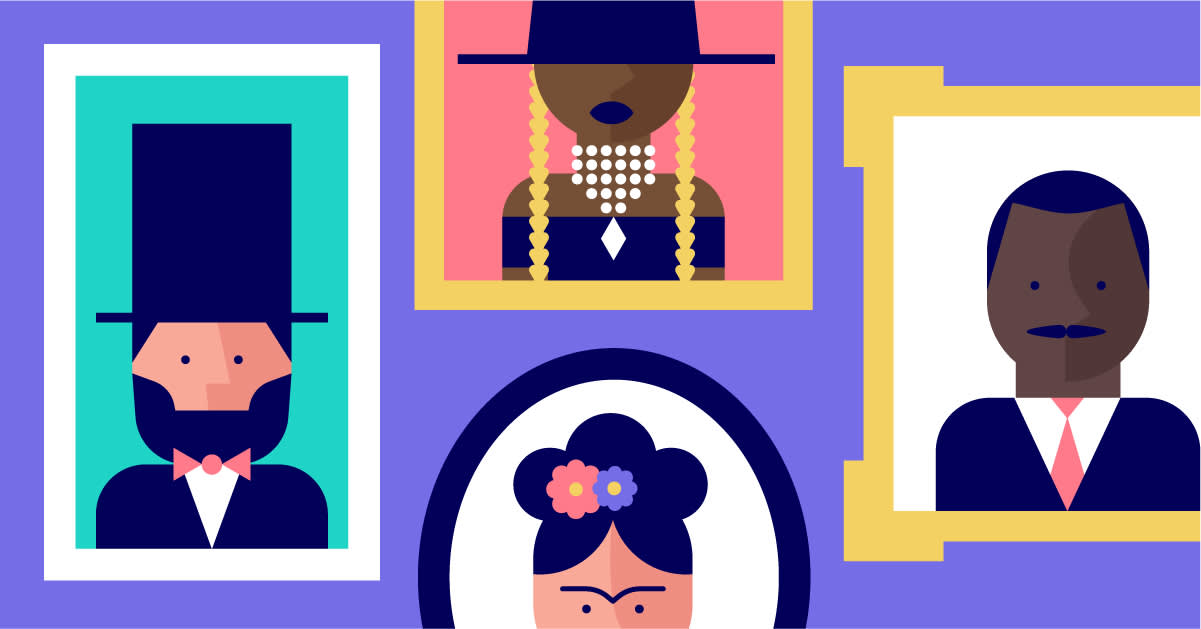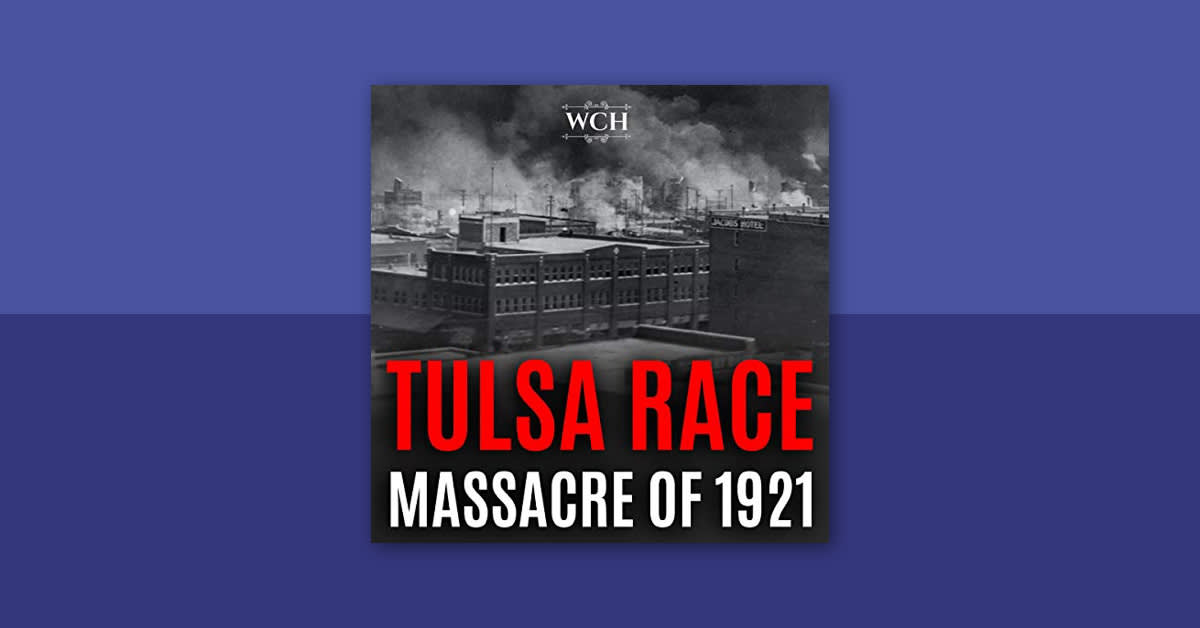I was pondering—as one does—what makes history come alive, and I noticed listeners often say, “This is the biography X deserves!” when they love a title. Sometimes biographies are about multiple people or a famous event, but a great biography manages through deep research and narrative arc to provide a fresh take on a familiar subject. Here, I’ve curated my favorite biographies that reveal a “household name” in a whole new way in audio; all of them feature rich historic detail and unpausable, stellar narration. Enjoy!
Jesus Christ
To look at the historical Jesus within the context of Roman-occupied Palestine seems to fascinate everyone: Christians, atheists, and adherents to other religions. The author’s narration adds to the experience of Zealot.
Genghis Khan
It took an anthropologist—who spent years learning Mongolian, living on the steppes for a part of each year, and listening for the truth of Genghis Khan’s life—to flesh out a biography of a man whose life may actually have been bigger than his myth.
George Washington
The father of our country, up close and personal. Alexis Coe delves into primary sources to assemble a picture of Washington that includes but is not limited to the truth about those wooden teeth, his complex and loving relationship with family members, the enslaved people he owned, and of course his political and military wisdom.
Ulysses S. Grant
The Civil War didn’t win itself, people. Grant was a brilliant military supply problem-solver who inspired the loyalty of those he commanded, and he was an underrated president too. Ron Chernow’s prose and Mark Bramhall’s narration are both sublime!
Juneteenth
Almost everyone has heard of Juneteenth, but it took Annette Gordon-Reed’s essays to drive home the deep and multifaceted meaning of the holiday. Growing up in Texas, she shares how Juneteenth history is a part of her state’s, and our nation’s, history.
Laura Ingalls Wilder
I love the Little House books, although they aren’t perfect. Prairie Fires explores how the real Ingalls family was playing a pioneer game they couldn’t win, and how Laura Ingalls Wilder overcame and transmuted her personal grief into beloved, and flawed, works of fiction.
Winston Churchill
I tried not to be a fan of this book (I was Churchill-ed out, I guess), but Editor Kat’s interview with Erik Larson, and John Lee’s narration, brought out the greatness of the story. I got chills when I listened to Churchill’s 1941 Christmas Eve speech (included in the audiobook), and to know what was behind it.
Nazi Scientist Diaspora
Annie Jacobsen draws upon declassified American and German documents to sketch out Operation Paperclip, the government program to repatriate (formerly?) Nazi scientists from the defunct Third Reich to America after World War II.
Alan Turing
The genius of Alan Turing is as much about what he overcame as about what he accomplished. Bonus: This is the book upon which the film was based!
Henrietta Lacks
Henrietta Lacks wasn’t a household name when I was growing up, but she is now, thanks to this riveting bio. It traces the all-too-brief life of a poor Black mother with cancer, whose cells were used without her consent to pave the way for breakthroughs from the polio vaccine to cancer treatments.
Ethel Rosenberg
Executed after her conviction for conspiracy to commit espionage (not even actual espionage!), Ethel Rosenberg was more than a possible spy. Through her prison correspondence and other primary sources, she comes to life as a wife, a mother, an idealist, and a tragic personal story.
Sylvia Plath
Red Comet was a revelation to me, the first biography of Sylvia Plath that centered the story on her artistic development, not her mental illness. It was a joy to get to know the poet as the beloved daughter of an immigrant family, an earnest aspiring artist, and—to paraphrase Virginia Woolf—“a mind that consumed all impediments” in her art.
James Baldwin
Eddie S. Glaude Jr. wrote so much more than a mere biography of James Baldwin. His appreciation for Baldwin’s crucible in the “after-times” of post-civil rights America taught me a lot about Baldwin’s life, and even more about how Baldwin’s lived experience can inform my own path as an ordinary citizen striving for a just society.
Charles Manson
Helter Skelter was a great story, but it’s not the end of the story, or even the whole story! Chaos puts Manson in context against the backdrop of a drug-soaked youth culture, the Hollywood power structure, and CIA investigations. 20 years in the making and worth the wait!
Jimmy Carter
Jonathan Alter collected thousands of hours of interviews with the Carter family and colleagues to assemble a rich, evenhanded, groundbreaking look at the life of a complex president. Amazingly, there’s no other comprehensive bio that covers Carter’s early life, his Navy career, his presidency, and his post-presidential humanitarian contributions. This one sounds like a novel.
AIDS
Victor Bevine’s narration brings to life the widespread grief and hard-won triumphs of the era when AIDS burst upon the world scene. Randy Shilts tells the heroic stories of individuals in science, politics, public health, and the gay community who struggled to alert the nation to the enormity of the danger it faced.
Steve Jobs
Based on more than 40 interviews with Jobs conducted over two years—as well as interviews with more than a hundred family members, friends, adversaries, competitors, and colleagues—Walter Isaacson explores the roller-coaster life and searingly intense personality of a creative entrepreneur whose passion for perfection and ferocious drive revolutionized six industries: personal computers, animated movies, music, phones, tablet computing, and digital publishing.
Summitting Mount Everest
Into Thin Air is the definitive account of the deadliest season in the history of Everest by the acclaimed journalist and author who was there (and luckily safe), Jon Krakauer. It’s the comprehensive “biography” of a tragedy, start to finish.
Columbine
What really happened on April 20, 1999? The horror left an indelible stamp on the American psyche, but most of what we "know" is wrong. It wasn't about jocks, Goths, or the Trench Coat Mafia. Dave Cullen was one of the first reporters on the scene and spent 10 years on this book, which is widely recognized as the definitive account of the Columbine High School massacre.
























